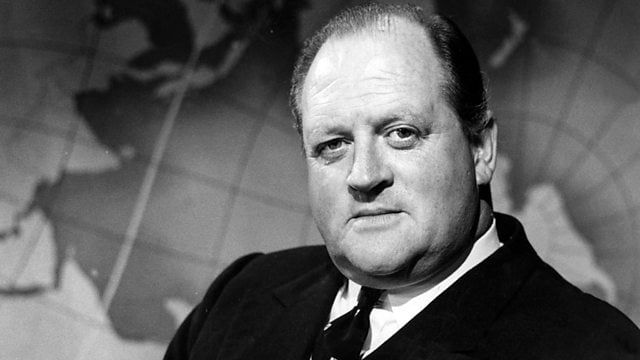Frederick Richard Dimbleby was an English journalist and broadcaster who served as the BBC’s first war correspondent and later as its chief TV news commentator. But did you know that the BBC initially refused to air Dimbleby’s work on the Belsen Concentration Camp in 1945?
The BBC initially refused to publish Richard Dimbleby’s eyewitness account of the Belsen concentration camp in April 1945, claiming that it was not as bad as he described. At Belsen, an estimated 70,000 people died. After Dimbleby threatened to resign, the BBC agreed to broadcast.
The Voice of the Nation: Richard Dimbleby
In 1936, Richard Dimbleby became a household name as the BBC’s first frontline radio reporter. With the advent of postwar television, he covered all major events on the new medium. His death from cancer in 1965, at the age of 52, as the Voice of the Nation, shocked the British people. Their response resulted in the establishment of a charity bearing his name. Read about his life and work, from war fronts to major state events to the spaghetti tree hoax.
In 1931, Richard Dimbleby began his career at The Richmond and Twickenham Times. He became the BBC’s first reporter and, later, its first war correspondent. He reported from numerous fronts and flew 20 missions with Bomber Command, including one to Berlin, recording his reports for broadcast the next day.
He broadcast the first report from the Belsen concentration camp in 1945. He was also one of the first journalists to try out unusual outside broadcasts. (Source: Richard Dimbleby)
Richard Dimbleby After the War
Following the war, Richard moved to television, quickly becoming the BBC’s leading commentator on major public events. These included Elizabeth II’s coronation and the funerals of George VI, John F. Kennedy, and Winston Churchill. He wrote Elizabeth Our Queen, a book about the coronation distributed free to many schoolchildren.
In 1951, he participated in the first Eurovision television relay, and in 1961, he appeared in the first live television broadcast from the Soviet Union. In July 1962, he also broadcasted the first live television signal from the United States via the Telstar satellite. There is a face… it’s a man’s face!” he says. I can make out a man’s face! became famous. Aside from heavyweight journalism, he hosted lighter shows like Down Your Way and was a panelist on Twenty Questions.
He hosted the flagship current affairs show Panorama. He could keep his reporting skills by visiting places like Berlin, where he stood in front of the Brandenburg Gate a week before the Berlin Wall was built.
Richard Dimbleby’s reputation was built on his ability to describe events clearly while also capturing the drama and poetry of the numerous state functions he covered.
The Lying-in-State of George VI in Westminster Hall depicted the stillness of the guardsmen standing like statues at the four corners of the catafalque, or the description of the drums at Kennedy’s funeral, which he said beat as the pulse of a man’s heart, were examples. His commentary on Churchill’s funeral in January 1965 was the last state event he commented on. He was awarded the OBE in 1945 and the CBE in 1959. (Source: Richard Dimbleby)
Image from BBC
